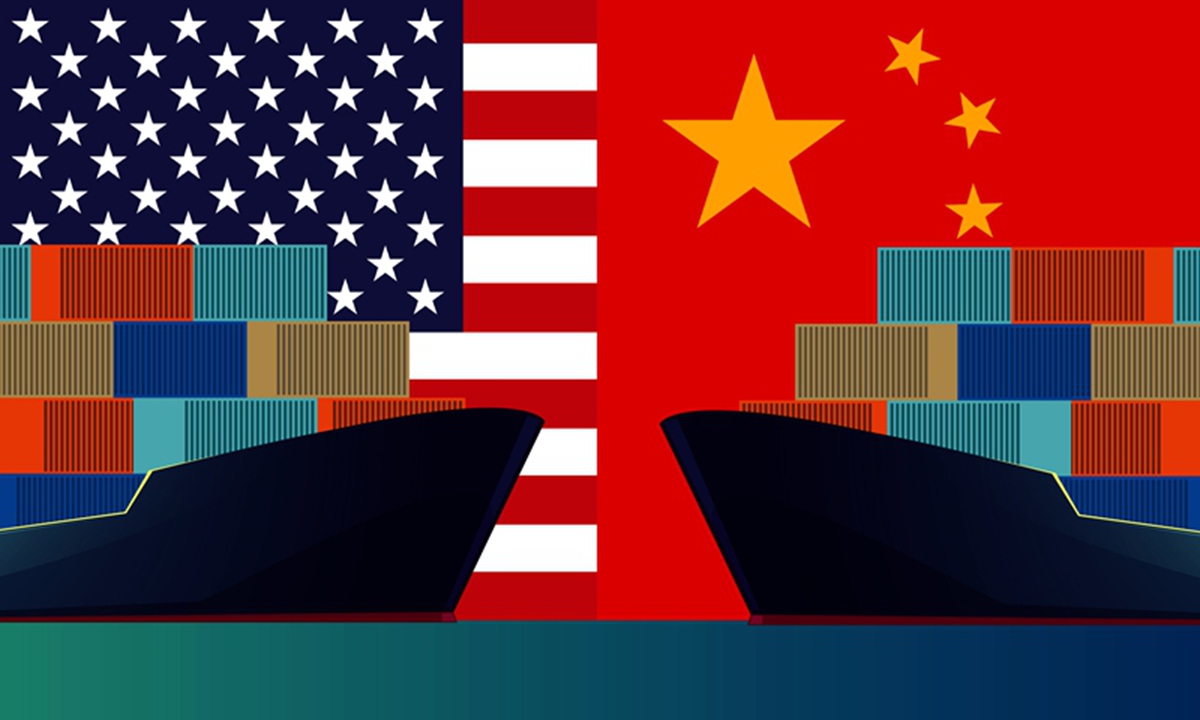LATEST INSIGHTS
Your Present Location: LATEST INSIGHTSDing Gang: Why the West has been nervously forecasting when China's economy will overtake US’
Source: GT Published: 2022-09-08

It is not surprising that it is becoming more and more fashionable to predict the course of the Chinese economy. China is the world's second-largest economy, and its steady growth is enough to influence economic trends and decisions in many countries.
But which data about China is more important and which is not is a matter of opinion.
For example, US media recently cited the latest projections from the Center for Economics and Business Research, a British think tank, which said that China would surpass the US as the world's largest economy by 2030, two years behind its earlier projections. The Japan Center for Economic Research in Tokyo, on the other hand, believes that the overtaking point will not be reached until 2033, four years later than previously predicted.
Most of the recent Western media reports share the same judgment that China's economic scale overtaking the US will be delayed, and some scholars even pessimistically predict that such an overtaking is no longer possible.
Most Western forecasts for China in the last decade or two have failed, and the analytical models that Western scholars have built up based on their economic theories have often failed to hold up when it comes to China.
Yet, scholars and politicians are still happy to throw out data. This is partly because they still insist that only data models built on the basis of Western economic theory can predict the Chinese economy more accurately. It is also because they care too much about China's development. Take away their forecasts for the Chinese economy, and no one cares about their global macroeconomic forecasts.
Of course, there is a background to the recent resurgence as to whether China's economy will surpass the US in size - the impact of the COVID-19 pandemic. How China's economy emerges from the epidemic and regains its footing is as much a Chinese as it is a world issue.
The difference is that the Chinese are now not concerned with surpassing the US or winning and replacing the US in a "competition" that US politicians are trying to build, but care more about how to get China's own affairs in order. This has become the consensus from the top down.
This consensus has been formed throughout the past 40 years of reform and opening-up, and it is far more important than any data to interpret China's past, present and future.
The Chinese know that even if the total economic volume surpasses that of the US, it will not be possible to replace the US in the global economy. What's more, with a large population and a GDP per capita ranking of 60th (2021), it needs a long time to strive to move up further.
Then, it is necessary to ask rhetorically why the elites in the US and the West are always thinking about when China will overtake the US in terms of economic size. This is because the rise of China has touched their deepest sense of superiority, a psychological superiority that has developed over five hundred years of Western expansion. Envy, jealousy, suspicion and fear in front of China's rise, all these emotional changes actually stem from the psychological perception that Western civilization is unsurpassable.
Two other recent statistics should receive more considerable attention, if anyone wants to have a more accurate prediction of China's future.
One is that India has overtaken the United Kingdom to become the fifth largest economy in the world. 17 years after China overtook the United Kingdom, India has become another developing country to enter the top five economies in the world.
IMF data shows that as early as 2007, the total economic volume of emerging markets and developing countries at purchasing power parity has surpassed that of developed economies and reached 57.9 percent of the global share in 2021. This share is expected to exceed 60 percent by 2026, reaching 1.5 times that of developed economies.
The second figure is that life expectancy in China already surpasses that of the US.
In 2019, life expectancy in the US was 78.8 years, 1.5 years higher than China's figure. In 2021, the number dropped to 76.1 years, the lowest point in 26 years, while life expectancy in China was 78.2 years. An important background factor is that China and the US have adopted different policies in response to the epidemic.
Key Words: US,China,GT, Ding Gang























































































 京公网安备 11010802037854号
京公网安备 11010802037854号





